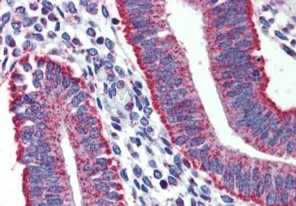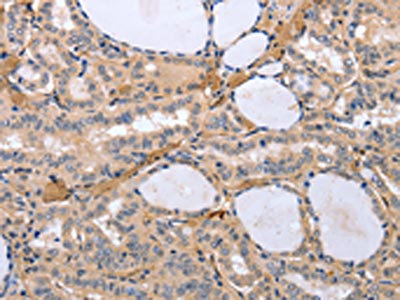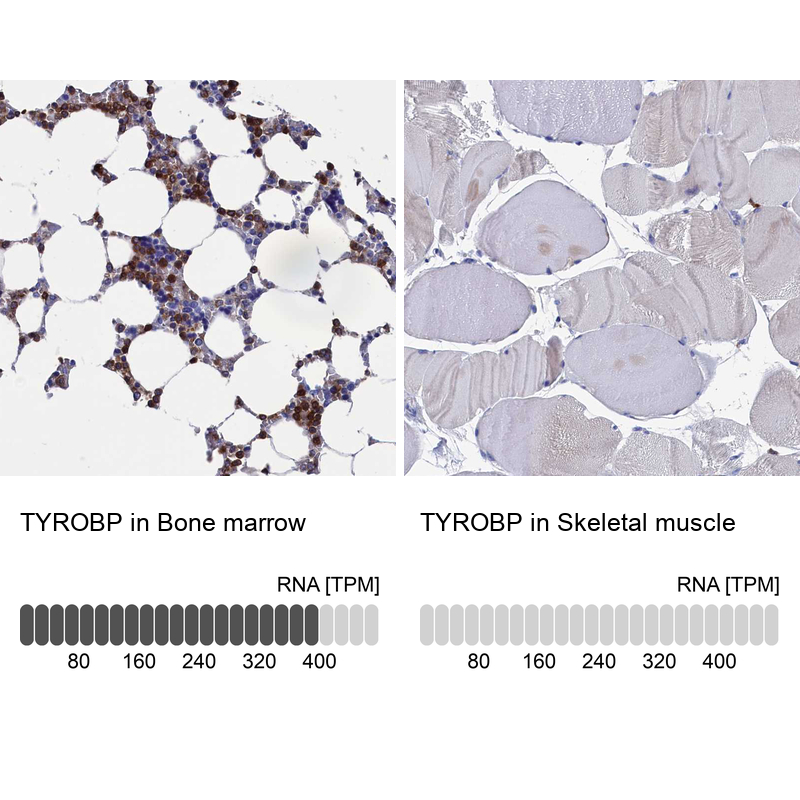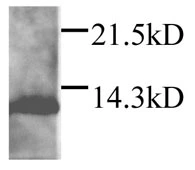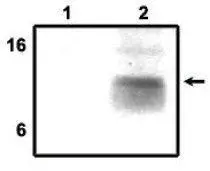
GTX16462 at 3g (per mg of protein lysate)detecting DAP12 on MHC ClassI postive cells (Lane 1) and NKp44 postive cells (Lane 2) by immunoprecipitation.
DAP12 antibody
GTX16462
ApplicationsImmunoPrecipitation, Western Blot
Product group Antibodies
ReactivityHuman, Mouse
TargetTYROBP
Overview
- SupplierGeneTex
- Product NameDAP12 antibody
- Delivery Days Customer9
- Application Supplier NoteIP: Use at a concentration of 2-4 microg/mg of protein lysate. WB: Use at an assay dependent dilution. Optimal dilutions/concentrations should be determined by the end user.
- ApplicationsImmunoPrecipitation, Western Blot
- CertificationResearch Use Only
- ClonalityPolyclonal
- Concentration1 mg/ml
- ConjugateUnconjugated
- Gene ID7305
- Target nameTYROBP
- Target descriptiontransmembrane immune signaling adaptor TYROBP
- Target synonymsDAP12, KARAP, PLOSL, PLOSL1, TYRO protein tyrosine kinase-binding protein, DNAX adaptor protein 12, DNAX-activation protein 12, KAR-associated protein, TYRO protein tyrosine kinase binding protein, killer-activating receptor-associated protein, polycystic lipomembranous osteodysplasia with sclerosing leukoencephalopathy
- HostRabbit
- IsotypeIgG
- Protein IDO43914
- Protein NameTYRO protein tyrosine kinase-binding protein
- Scientific DescriptionThis gene encodes a transmembrane signaling polypeptide which contains an immunoreceptor tyrosine-based activation motif (ITAM) in its cytoplasmic domain. The encoded protein may associate with the killer-cell inhibitory receptor (KIR) family of membrane glycoproteins and may act as an activating signal transduction element. This protein may bind zeta-chain (TCR) associated protein kinase 70kDa (ZAP-70) and spleen tyrosine kinase (SYK) and play a role in signal transduction, bone modeling, brain myelination, and inflammation. Mutations within this gene have been associated with polycystic lipomembranous osteodysplasia with sclerosing leukoencephalopathy (PLOSL), also known as Nasu-Hakola disease. Its putative receptor, triggering receptor expressed on myeloid cells 2 (TREM2), also causes PLOSL. Multiple alternative transcript variants encoding distinct isoforms have been identified for this gene. [provided by RefSeq, Mar 2010]
- ReactivityHuman, Mouse
- Storage Instruction-20°C or -80°C,2°C to 8°C
- UNSPSC41116161

